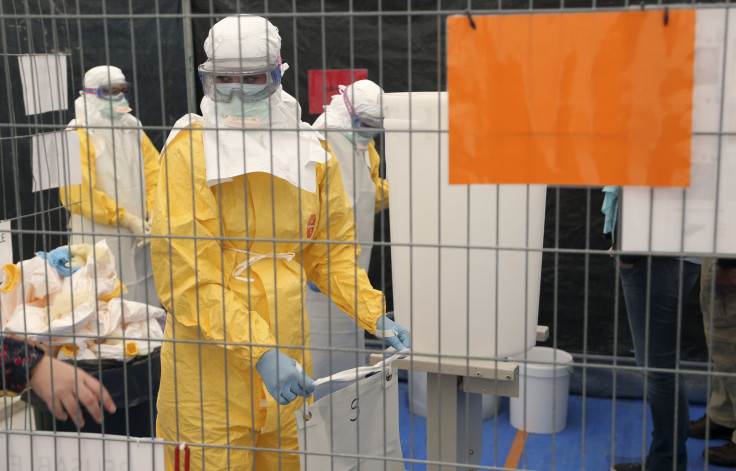Can You Get Ebola From A Sneeze Or Cough? Facts And Myths About The Viral Infection

After the Ebola epidemic made its way into the United States, people have become increasingly worried about catching the deadly virus. There is confusion about Ebola facts and myths -- for example, worries that the disease could be contracted through a sneeze or a cough.
Here is the latest information about Ebola, including how it can or cannot be transferred, from the Centers for Disease Control and Prevention, KSDK.com and USA Today.
How is a person infected with Ebola?
Ebola is transferred through direct contact. That means bodily fluid would have to come in contact with your eyes, nose, mouth or broken skin like a cut, wound or abrasion. The viral disease is not airborne and it cannot be spread through water.
What bodily fluids spread Ebola?
The virus can be contracted through an infected person’s saliva, mucus, vomit, feces, sweat, tears, breast milk, urine or semen.
Can you get Ebola through a sneeze or cough?
A person who was symptomatic would have to sneeze or cough on a person directly, and then the mucus or saliva would have to come into contact with the eyes, nose, mouth or open wound for an individual to be at risk. Sneezing and coughing are not symptoms of Ebola.
Can you get Ebola from kissing?
Ebola can be transferred through kissing and sex but only if the infected individual is symptomatic.
What about shaking hands?
Shaking hands is a low-risk chance of getting Ebola. There is a possibility if the Ebola patient’s hands contain fluids.
Here are the ways Ebola cannot be spread:
--Air
--Water
--Casual contact
--Food grown or legally purchased in the U.S.
These are the only ways you can get Ebola, as listed by the CDC:
--Touching contaminated substances, like needles.
-- Touching the blood or body fluids of a person who is symptomatic or has died from Ebola.
--Touching the blood, bodily fluids or meat of an infected animal.
Follow me on Twitter @mariamzzarella
© Copyright IBTimes 2025. All rights reserved.






















